Hosted by the Santa Clara Law Review and the Center for Social Justice and Public Service
MCLE credits available
Free Event with Registration
Thank you for your interest in the Race and the Criminal Justice System Symposium. Registration is now closed for this event. To reserve a seat, please email Catherine Vega at cvega@scu.edu.
Details
Symposium Schedule
Speaker Bios
Keynote Speaker Gerald F. Uelmen
Professor of Law and Director, Edwin A. Heafey Jr. Center for Trial and Appellate Advocacy, Santa Clara University School of Law
Discussing Race and the War on Drugs
More About the Event
The Santa Clara Law Review and the Center for Social Justice and Public Service cordially invite students, faculty, practitioners, and members of the social justice community to our Race and the Criminal Justice System Symposium. The event will explore the disproportionate negative effects that our criminal laws have on minority communities. As the killings of Mike Brown, John Crawford III, Eric Garner, and Tamir Rice at the hands of law enforcement officials have brought this issue to the forefront of social discourse, the examination of criminal justice reform has been a focus of President Obama in his second term. In July 2015, he became the first sitting U.S. President to visit a federal prison, where he questioned multi-decade sentences for nonviolent crimes. Our 2016 Symposium panelists and keynote speaker will address the current temperature on police-community relations, the criminalization of immigration, and the history of racial violence along with future solutions.
“For generations, we’ve had African-American and Latino communities who have pointed to racial disparities in the application of criminal justice, from arrest rates to sentencing to incarceration rates. And all too often these concerns, no matter how well documented, have been brushed aside. And we can’t have a situation in which a big chunk of the population feels like maybe the system isn’t working as well for them.“
– President Barack Obama, October 27, 2015, addressing the International Association of Chiefs of Police
Keynote Speaker
 Gerald F. Uelmen
Gerald F. Uelmen
Professor Uelmen is renowned for his extensive experience in criminal law. He is most well-known for serving on the defense team for the trial of People v. O.J. Simpson in 1994-95; his account of the trial was published as Lessons From the Trial in 1996. Uelmen has argued several cases before the U.S. Supreme Court and California Supreme Court, serving as pro bono counsel for patients asserting the right to use medical marijuana. Professor Uelmen is currently the Director of the Edwin A. Heafy Jr. Center for Trial and Appellate Advocacy at Santa Clara University School of Law, and served as the dean of the law school from 1986 to 1994. Prior to joining the Santa Clara University School of Law faculty, he was a member of the law faculty at Loyola Law School in Los Angeles, where he also served as associate dean for two years. While teaching, he maintained an active part-time criminal defense practice, participating in the defense of Daniel Ellsberg in the Pentagon Papers trial and successfully challenging the murder conviction of Gordon Castillo Hall. Uelmen has also served in the U.S. Attorney’s Office in Los Angeles, prosecuting organized crime cases. As a Prettyman Fellow at Georgetown, he did indigent criminal defense work while earning an LL.M. degree.
Symposium Schedule
| 9:00 am – 9:30 am | Registration |
| 9:30 am – 9:45 am | Welcome from Lisa Kloppenberg, Dean of the School of Law, Santa Clara University School of Law, Deborah Moss West, Executive Director, Katharine & George Alexander Community Law Center, and Wesley Dodd, Editor-in-Chief, Santa Clara Law Review: Volume 56 |
| 9:45 am – 11:00 am |
Panel 1: Community-Police Relations Moderator: Kathleen Ridolfi, Professor, Santa Clara University School of Law, cofounder and former director of the Northern California Innocence Project |
| 11:15 am – 12:30 pm |
Panel 2: Historical Perspective on Criminal Sentencing and Implicit Bias in the Criminal Justice System Moderator: Marina Hsieh, Senior Fellow, Santa Clara University School of Law |
| 12:30 pm – 1:45pm |
Keynote with Gerald F. Uelmen, Professor of Law and Director, Edwin A. Heafey Jr. Center for Trial and Appellate Advocacy, Santa Clara University School of Law, and Lunch |
| 2:00 pm – 3:15 pm |
Panel 3: Criminalization of Immigration Moderator: Evangeline Abriel, Clinical Professor, Santa Clara University School of Law |
| 3:15 pm – 3:30 pm |
Closing Remarks by Bradley Joondeph, Associate Dean of Academic Affairs, Santa Clara University School of Law |
| 3:30 pm – 4:30 pm | Wine and Cheese Reception |
Speaker Bios
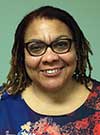 Margalynne J. Armstrong joined the Santa Clara University School of Law faculty in 1987 and serves on the boards of several community organizations. She is well-published in the areas of housing, racial discrimination, comparative and constitutional law. Prior to joining the law faculty at Santa Clara, Armstrong practiced public employment law, served as a staff attorney with the Legal Aid Society of Alameda County, and directed the Academic Support Program at Boalt Hall. While she attended University of California, Berkeley, she served as associate editor of the Ecology Law Quarterly.
Margalynne J. Armstrong joined the Santa Clara University School of Law faculty in 1987 and serves on the boards of several community organizations. She is well-published in the areas of housing, racial discrimination, comparative and constitutional law. Prior to joining the law faculty at Santa Clara, Armstrong practiced public employment law, served as a staff attorney with the Legal Aid Society of Alameda County, and directed the Academic Support Program at Boalt Hall. While she attended University of California, Berkeley, she served as associate editor of the Ecology Law Quarterly.
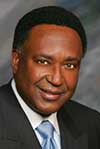 John Burris has practiced law for more than 40 years. His primarily known for his work in the areas of Civil Rights with an emphasis on police misconduct excessive force cases raising federal questions under Federal Code Section 1983. His other practice areas include employment litigation, criminal defense, personal injury, and toxic torts and mass class actions. Before founding the Law Offices of John L. Burris, his previous employment included Harris, Alexander, and Burris, 1979 to 1985; Deputy District Attorney with the Alameda County District Attorney’s Office from 1977 to 1979; Assistant State’s State Attorney in Cook County, Illinois from 1975 to 1976; Associate Attorney, Jenner and Block, Associate 1973 to 1975; and Summer Associate, Associate with Jenner and Block, Summer 1972 where he worked on Metcalf Commission investigating police brutality claims in Chicago. He is a frequent lecturer on the topics of police and criminal justice issues.
John Burris has practiced law for more than 40 years. His primarily known for his work in the areas of Civil Rights with an emphasis on police misconduct excessive force cases raising federal questions under Federal Code Section 1983. His other practice areas include employment litigation, criminal defense, personal injury, and toxic torts and mass class actions. Before founding the Law Offices of John L. Burris, his previous employment included Harris, Alexander, and Burris, 1979 to 1985; Deputy District Attorney with the Alameda County District Attorney’s Office from 1977 to 1979; Assistant State’s State Attorney in Cook County, Illinois from 1975 to 1976; Associate Attorney, Jenner and Block, Associate 1973 to 1975; and Summer Associate, Associate with Jenner and Block, Summer 1972 where he worked on Metcalf Commission investigating police brutality claims in Chicago. He is a frequent lecturer on the topics of police and criminal justice issues.
 Veena Dubal is an Associate Professor at UC Hastings School of Law. Professor Dubal joined the Hastings Faculty in 2015, after a post-doctoral fellowship at Stanford University (also her undergraduate alma mater). Prior to that, Professor Dubal received her J.D. and Ph.D. from UC Berkeley, where she used historical and ethnographic methodologies to study workers and worker collectivities in the San Francisco taxi industry. The subject of her doctoral research arose from her own experiences as a public interest attorney and Berkeley Law Foundation fellow at the Asian Law Caucus where she founded a taxi worker project and represented Muslim Americans in civil rights cases. Complementing her academic scholarship, Professor Dubal’s legal commentary is regularly featured in the local and national media, particularly her current research on precarious workers in the “sharing economy.”
Veena Dubal is an Associate Professor at UC Hastings School of Law. Professor Dubal joined the Hastings Faculty in 2015, after a post-doctoral fellowship at Stanford University (also her undergraduate alma mater). Prior to that, Professor Dubal received her J.D. and Ph.D. from UC Berkeley, where she used historical and ethnographic methodologies to study workers and worker collectivities in the San Francisco taxi industry. The subject of her doctoral research arose from her own experiences as a public interest attorney and Berkeley Law Foundation fellow at the Asian Law Caucus where she founded a taxi worker project and represented Muslim Americans in civil rights cases. Complementing her academic scholarship, Professor Dubal’s legal commentary is regularly featured in the local and national media, particularly her current research on precarious workers in the “sharing economy.”
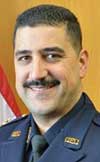 Paul Figueroa became an Oakland police officer in 1995 and currently serves as the Assistant Chief of Police. He has extensive experience in field command, criminal investigations, accountability, and community policing programs. He has served as the commander in the Patrol Division, Training Section, Internal Affairs Division, Inspector General’s Office, and as Chief of Staff to the Chief of Police. He has worked to increase the legitimacy of the police and procedural justice practices in Oakland, Ca. He holds a bachelor’s degree in Political Science from Cal State East Bay. He earned a Master’s Degree in Public Administration from Golden Gate University in San Francisco, where he was recognized as the top student of his graduating class. In 2012, he graduated from the University of La Verne, in Southern California, with a Doctorate Degree in Organizational Leadership (EdD). Combining his academic and professional work, he worked to create a model for building trust between the police and community. He is a graduate of the FBI National Academy Session 231, Police Executive Research Forum Senior Management Institute of Policing Session #54, and the California Commission on Police Officer Standards and Training Master Instructor Development Program. In 1997, he was recognized as Police Officer of the Year by the Exchange Club of Oakland. After receiving a Governor’s appointment, he served as a commissioner on the California Council for Criminal Justice from 2008 – 2011. The Council reviewed, revised, and approved the state’s plan for improving criminal justice and delinquency prevention activities and recommended funding priorities for the State of California. In 2010, he received the Oakland Police Department’s Medal of Merit and has received other accolades for his work in the community and law enforcement.
Paul Figueroa became an Oakland police officer in 1995 and currently serves as the Assistant Chief of Police. He has extensive experience in field command, criminal investigations, accountability, and community policing programs. He has served as the commander in the Patrol Division, Training Section, Internal Affairs Division, Inspector General’s Office, and as Chief of Staff to the Chief of Police. He has worked to increase the legitimacy of the police and procedural justice practices in Oakland, Ca. He holds a bachelor’s degree in Political Science from Cal State East Bay. He earned a Master’s Degree in Public Administration from Golden Gate University in San Francisco, where he was recognized as the top student of his graduating class. In 2012, he graduated from the University of La Verne, in Southern California, with a Doctorate Degree in Organizational Leadership (EdD). Combining his academic and professional work, he worked to create a model for building trust between the police and community. He is a graduate of the FBI National Academy Session 231, Police Executive Research Forum Senior Management Institute of Policing Session #54, and the California Commission on Police Officer Standards and Training Master Instructor Development Program. In 1997, he was recognized as Police Officer of the Year by the Exchange Club of Oakland. After receiving a Governor’s appointment, he served as a commissioner on the California Council for Criminal Justice from 2008 – 2011. The Council reviewed, revised, and approved the state’s plan for improving criminal justice and delinquency prevention activities and recommended funding priorities for the State of California. In 2010, he received the Oakland Police Department’s Medal of Merit and has received other accolades for his work in the community and law enforcement.
 Kara Hartzler is an appellate attorney at the Federal Defenders of San Diego, Inc. Prior to joining the Federal Defenders, she served as the Legal Director and Criminal Immigration Consultant at the Florence Immigrant and Refugee Rights Project in Arizona, where she specialized in the immigration consequences of criminal convictions. Kara has conducted more than 80 trainings for defense attorneys, prosecutors, and judges on the immigration consequences of criminal convictions; provided over 4,000 individual consultations to defenders representing noncitizens; and is the author of Surviving Padilla: A Defender’s Guide to Advising Noncitizens on the Immigration Consequences of Criminal Convictions. Kara also served as an adjunct professor at the University of Arizona College of Law and has done extensive litigation and appellate work in the areas of unlawful detention, removal defense, and the deportation of United States citizens. In 2008, she testified in front of the U.S. House of Representatives Subcommittee on Immigration on the detention and deportation of citizens and other due process violations in the immigration system. She is also the recipient of the 2013 David Carliner Public Interest Award and the 2010 Robert J. Hooker Award for service to the defender community.
Kara Hartzler is an appellate attorney at the Federal Defenders of San Diego, Inc. Prior to joining the Federal Defenders, she served as the Legal Director and Criminal Immigration Consultant at the Florence Immigrant and Refugee Rights Project in Arizona, where she specialized in the immigration consequences of criminal convictions. Kara has conducted more than 80 trainings for defense attorneys, prosecutors, and judges on the immigration consequences of criminal convictions; provided over 4,000 individual consultations to defenders representing noncitizens; and is the author of Surviving Padilla: A Defender’s Guide to Advising Noncitizens on the Immigration Consequences of Criminal Convictions. Kara also served as an adjunct professor at the University of Arizona College of Law and has done extensive litigation and appellate work in the areas of unlawful detention, removal defense, and the deportation of United States citizens. In 2008, she testified in front of the U.S. House of Representatives Subcommittee on Immigration on the detention and deportation of citizens and other due process violations in the immigration system. She is also the recipient of the 2013 David Carliner Public Interest Award and the 2010 Robert J. Hooker Award for service to the defender community.
 John Jones is the Outreach Coordinator at the Ella Baker Center for Human Rights. John works toward building and maintaining collaborations with other organizations, as part of an effort to end mass incarceration and support economic dignity. Currently, John is involved in Prop 47 reclassification outreach, as well as the campaign to reduce probation terms in Alameda County, divert funding from law enforcement agencies to programs and services that assist people released from prison and jail, and establish accountability and transparency from key decision makers.
John Jones is the Outreach Coordinator at the Ella Baker Center for Human Rights. John works toward building and maintaining collaborations with other organizations, as part of an effort to end mass incarceration and support economic dignity. Currently, John is involved in Prop 47 reclassification outreach, as well as the campaign to reduce probation terms in Alameda County, divert funding from law enforcement agencies to programs and services that assist people released from prison and jail, and establish accountability and transparency from key decision makers.
Being a formerly incarcerated individual, and father of three, John has been a leader/organizer in the community in the areas of ending mass incarceration (Prop 47), community safety (Measure Z), education (Measure N), employment (Revive Oakland, Coliseum City), and building bridges between the different ethnicities and community organizations in Oakland.
 Angie Junck is a supervising attorney at the Immigrant Legal Resource Center (ILRC) where she has worked since 2005. She specializes in the immigration consequences of crime and delinquency, immigration enforcement, and immigrant youth issues. She is a co-author of several ILRC publications including, Defending Immigrants in the Ninth Circuit: The Impact of Crimes under California and Other State Laws, Remedies and Strategies for Permanent Resident Clients, and Special Immigrant Juvenile Status and Other Immigration Options for Children & Youth. She helps coordinate two national collaboratives that address the intersection of the immigration and criminal justice systems–the Defending Immigrants Project, a collaborative devoted to protecting the rights of immigrants accused of crimes by providing advocacy and support within the criminal justice system and the Immigrant Justice Network, a collaborative to eliminate unjust immigration penalties for immigrants and end the criminalization of immigrant communities. She sits on the American Bar Association’s Immigration Commission and is the co-chair of the Immigration Committee of the ABA’s Criminal Justice Section. Prior to joining the ILRC, she worked on post-conviction relief for immigrants at the Law Offices of Norton Tooby and advocated on behalf of incarcerated survivors of domestic violence as the co-coordinator of Free Battered Women and a member of the Habeas Project.
Angie Junck is a supervising attorney at the Immigrant Legal Resource Center (ILRC) where she has worked since 2005. She specializes in the immigration consequences of crime and delinquency, immigration enforcement, and immigrant youth issues. She is a co-author of several ILRC publications including, Defending Immigrants in the Ninth Circuit: The Impact of Crimes under California and Other State Laws, Remedies and Strategies for Permanent Resident Clients, and Special Immigrant Juvenile Status and Other Immigration Options for Children & Youth. She helps coordinate two national collaboratives that address the intersection of the immigration and criminal justice systems–the Defending Immigrants Project, a collaborative devoted to protecting the rights of immigrants accused of crimes by providing advocacy and support within the criminal justice system and the Immigrant Justice Network, a collaborative to eliminate unjust immigration penalties for immigrants and end the criminalization of immigrant communities. She sits on the American Bar Association’s Immigration Commission and is the co-chair of the Immigration Committee of the ABA’s Criminal Justice Section. Prior to joining the ILRC, she worked on post-conviction relief for immigrants at the Law Offices of Norton Tooby and advocated on behalf of incarcerated survivors of domestic violence as the co-coordinator of Free Battered Women and a member of the Habeas Project.
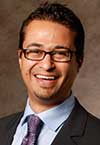 Tom I. Romero, II is an Assistant Provost of IE Research and Curricular Initiatives at the University of Denver and an Associate Professor Law and Affiliated Faculty in its College of Law and Department of History. Dr. Romero teaches and researches in the areas of the legal history of the American West, Latinos and the law, property, land use, water law, civil rights, local government, urban development, and racial identity in the United States. Dr. Romero is graduate of the University of Michigan where he received his J.D. and Ph.D. in history. Currently, Dr. Romero is revising a book manuscript on race, law, and local government in post-World War II Denver, Colorado.
Tom I. Romero, II is an Assistant Provost of IE Research and Curricular Initiatives at the University of Denver and an Associate Professor Law and Affiliated Faculty in its College of Law and Department of History. Dr. Romero teaches and researches in the areas of the legal history of the American West, Latinos and the law, property, land use, water law, civil rights, local government, urban development, and racial identity in the United States. Dr. Romero is graduate of the University of Michigan where he received his J.D. and Ph.D. in history. Currently, Dr. Romero is revising a book manuscript on race, law, and local government in post-World War II Denver, Colorado.
 Margaret Russell has been a member of the Santa Clara University School of Law faculty since 1990, and is affiliated with the University’s Center for Social Justice & Public Service, the Markkula Center for Applied Ethics, and the Center for Multicultural Learning. She has been honored for her contributions to student life at Santa Clara by the Asian Pacific Law Students Association and the Black Law Students Association. In 1991, she traveled to South Africa with a delegation of legal scholars to provide consultation on constitution-drafting for the post-apartheid transition. Prior to joining the Santa Clara Law faculty, Professor Russell was a fellow at the public interest firm Public Advocates, Inc., a law firm in San Francisco. She served as the director of Public Interest Programs and as the acting assistant dean of student affairs at Stanford University, and also clerked for the Honorable James E. Doyle of the U.S. District Court in Madison, Wisconsin.
Margaret Russell has been a member of the Santa Clara University School of Law faculty since 1990, and is affiliated with the University’s Center for Social Justice & Public Service, the Markkula Center for Applied Ethics, and the Center for Multicultural Learning. She has been honored for her contributions to student life at Santa Clara by the Asian Pacific Law Students Association and the Black Law Students Association. In 1991, she traveled to South Africa with a delegation of legal scholars to provide consultation on constitution-drafting for the post-apartheid transition. Prior to joining the Santa Clara Law faculty, Professor Russell was a fellow at the public interest firm Public Advocates, Inc., a law firm in San Francisco. She served as the director of Public Interest Programs and as the acting assistant dean of student affairs at Stanford University, and also clerked for the Honorable James E. Doyle of the U.S. District Court in Madison, Wisconsin.
 Jaron Shipp is a Deputy District Attorney with the Santa Clara County District Attorney’s Office. He is currently a member of the Sexual Assault Unit, prosecuting child and adult sexual assault cases. In his five years with the DA’s Office, he has been assigned to the Misdemeanor, Juvenile Justice, and Central Felony Units where he has prosecuted DUI, Robbery, Assault, Burglary, Arson, and Attempted Murder trials. In addition to his trial work, Jaron serves as a Community Liaison for the District Attorney’s Office – working with community organizations, non-profit agencies, and community members to foster open dialogue and communication between the community and the District Attorney’s Office. Outside of the office, Jaron is the President of the Bay Area Black Prosecutor’s Association, an organization focused on recruiting, mentoring, and training African-American prosecutors and giving back to the local community.
Jaron Shipp is a Deputy District Attorney with the Santa Clara County District Attorney’s Office. He is currently a member of the Sexual Assault Unit, prosecuting child and adult sexual assault cases. In his five years with the DA’s Office, he has been assigned to the Misdemeanor, Juvenile Justice, and Central Felony Units where he has prosecuted DUI, Robbery, Assault, Burglary, Arson, and Attempted Murder trials. In addition to his trial work, Jaron serves as a Community Liaison for the District Attorney’s Office – working with community organizations, non-profit agencies, and community members to foster open dialogue and communication between the community and the District Attorney’s Office. Outside of the office, Jaron is the President of the Bay Area Black Prosecutor’s Association, an organization focused on recruiting, mentoring, and training African-American prosecutors and giving back to the local community.
 Yolanda Vazquez is an Associate Professor at the University of Cincinnati College of Law where she teaches immigration law, crimmigration, and criminal procedure. Professor Vazquez’ research is part of a growing field which examines the causes and consequences of the merging relationship between the criminal justice and immigration systems, increasingly known as “crimmigration.” Specifically, her scholarship focuses on the impact crimmigration has on the criminal justice system as well as the influence that race and racism play in the construction and enforcement of crimmigration. She is currently working on research projects that explore potential theories as to why Latinos are disproportionately impacted by crimmigration as well as its ramifications to this population and U.S. society in the future. She currently serves on the boards of the Academic Advisory of the National Association of Criminal Defense Lawyers’ Scholarship into Courts Project and the Social Justice Collaborative. She is also an Academic Researcher for Border Criminologies based at the University of Oxford. Prior to joining the academic world, Professor Vazquez was a public defender in the Cook County Public Defender’s Office in Chicago as well as the Public Defender Service for the District of Columbia. She also conducted federal litigation on behalf of migrant farmworkers in the areas of labor and immigration. In 2011, she was awarded the Jack Wasserman Memorial Award for Excellence in Litigation in the Field of Immigration Law for her work on Padilla v. Kentucky, the Supreme Court case which gave a Sixth Amendment right to receive advice on the immigration consequences of a criminal conviction.
Yolanda Vazquez is an Associate Professor at the University of Cincinnati College of Law where she teaches immigration law, crimmigration, and criminal procedure. Professor Vazquez’ research is part of a growing field which examines the causes and consequences of the merging relationship between the criminal justice and immigration systems, increasingly known as “crimmigration.” Specifically, her scholarship focuses on the impact crimmigration has on the criminal justice system as well as the influence that race and racism play in the construction and enforcement of crimmigration. She is currently working on research projects that explore potential theories as to why Latinos are disproportionately impacted by crimmigration as well as its ramifications to this population and U.S. society in the future. She currently serves on the boards of the Academic Advisory of the National Association of Criminal Defense Lawyers’ Scholarship into Courts Project and the Social Justice Collaborative. She is also an Academic Researcher for Border Criminologies based at the University of Oxford. Prior to joining the academic world, Professor Vazquez was a public defender in the Cook County Public Defender’s Office in Chicago as well as the Public Defender Service for the District of Columbia. She also conducted federal litigation on behalf of migrant farmworkers in the areas of labor and immigration. In 2011, she was awarded the Jack Wasserman Memorial Award for Excellence in Litigation in the Field of Immigration Law for her work on Padilla v. Kentucky, the Supreme Court case which gave a Sixth Amendment right to receive advice on the immigration consequences of a criminal conviction.
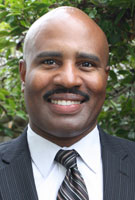 Keith Wattley is the Founder and Executive Director of UnCommon Law, a nonprofit prisoners’ rights organization in Oakland that helps life-sentenced prisoners and their families navigate the parole consideration process. He also provides training for advocates on various prison and parole matters. Prior to launching UnCommon Law in 2006, Wattley was a staff attorney at the Prison Law Office, a nonprofit law firm in Berkeley. He has represented thousands of prisoners in impact litigation and individual matters.
Keith Wattley is the Founder and Executive Director of UnCommon Law, a nonprofit prisoners’ rights organization in Oakland that helps life-sentenced prisoners and their families navigate the parole consideration process. He also provides training for advocates on various prison and parole matters. Prior to launching UnCommon Law in 2006, Wattley was a staff attorney at the Prison Law Office, a nonprofit law firm in Berkeley. He has represented thousands of prisoners in impact litigation and individual matters.
Wattley is a 1999 graduate of Santa Clara University School of Law. He received the law school’s 2009 Social Justice and Human Rights Award and was a Spring 2013 Practitioner-in-Residence. He also published “Insight Into California’s Life Sentences,” which appeared in the April 2013 edition of the Federal Sentencing Reporter. He is currently a Lecturer in Law at the UCLA School of Law and supervises the Post-Conviction Advocacy Project at UC Berkeley School of Law.
Moderators and Other Speaker Bios
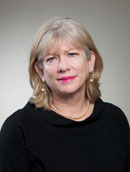 Evangeline Abriel joined the Legal Research, Analysis, and Writing faculty at Santa Clara University School of Law in 2003. In addition to teaching LARAW and Advocacy, she directs the Immigration Appellate Practice Clinic and the law school’s summer legal studies program in Sydney, Australia. She speaks and writes regularly on immigration law matters, particularly on immigration relief for refugees and victims of abuse and crime. Prior to joining the Santa Clara law faculty, Professor Abriel spent a year in Perth, Western Australia, where she taught at Notre Dame University School of Law and served as a consultant to the Murdoch University Law School Clinic in 1999. Upon returning to the United States, she was a senior attorney with the Catholic Legal Immigration Network (CLINIC) in San Francisco. Professor Abriel also served as a clinical professor of law at Loyola University New Orleans from 1983 until 1999, where she practiced law with her students in the areas of immigration, juvenile, domestic, and federal civil rights law; directed the Street Law program; and directed the Mobile Immigration Law Clinic.
Evangeline Abriel joined the Legal Research, Analysis, and Writing faculty at Santa Clara University School of Law in 2003. In addition to teaching LARAW and Advocacy, she directs the Immigration Appellate Practice Clinic and the law school’s summer legal studies program in Sydney, Australia. She speaks and writes regularly on immigration law matters, particularly on immigration relief for refugees and victims of abuse and crime. Prior to joining the Santa Clara law faculty, Professor Abriel spent a year in Perth, Western Australia, where she taught at Notre Dame University School of Law and served as a consultant to the Murdoch University Law School Clinic in 1999. Upon returning to the United States, she was a senior attorney with the Catholic Legal Immigration Network (CLINIC) in San Francisco. Professor Abriel also served as a clinical professor of law at Loyola University New Orleans from 1983 until 1999, where she practiced law with her students in the areas of immigration, juvenile, domestic, and federal civil rights law; directed the Street Law program; and directed the Mobile Immigration Law Clinic.
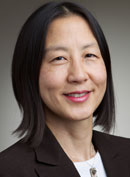 Marina Hsieh is a Senior Fellow who teaches and works on Santa Clara Law’s leadership education initiative and assessment. She founded and directed the Academic & Professional Development Department from 2005-11.
Marina Hsieh is a Senior Fellow who teaches and works on Santa Clara Law’s leadership education initiative and assessment. She founded and directed the Academic & Professional Development Department from 2005-11.
Prior to joining the Santa Clara law faculty, Hsieh taught at the law schools of the University of Maryland, U.C. Berkeley, U.C. Davis, USF, Columbia, and New York University. Before joining the world of academia, she was a civil rights lawyer for the NAACP Legal Defense & Educational Fund, Inc. in New York City. Hsieh has clerked for Hon. Louis Pollak, U.S. District Court for the Eastern District of Pennsylvania, and Hon. John Paul Stevens, Supreme Court of the United States.
 Bradley W. Joondeph is the Associate Dean of Academic Affairs at Santa Clara University School of Law. He is a well regarded author on the topics of federalism, judicial behavior, and American constitutional development. He has had extensive experience with the Supreme Court, having served as judicial clerk to the Honorable Sandra Day O’Connor. He also served as clerk for the Honorable Deanell Reece Tacha of the United States Court of Appeals for the Tenth Circuit. Prior to joining Santa Clara University School of Law in 2000, Professor Joondeph was an associate professor at Washington University School of Law, a lecturer and head teaching fellow at Stanford Law, and an adjunct instructor at the University of Kansas School of Law. He also served as a research assistant on the Dr. Martin Luther King, Jr. Papers Project.
Bradley W. Joondeph is the Associate Dean of Academic Affairs at Santa Clara University School of Law. He is a well regarded author on the topics of federalism, judicial behavior, and American constitutional development. He has had extensive experience with the Supreme Court, having served as judicial clerk to the Honorable Sandra Day O’Connor. He also served as clerk for the Honorable Deanell Reece Tacha of the United States Court of Appeals for the Tenth Circuit. Prior to joining Santa Clara University School of Law in 2000, Professor Joondeph was an associate professor at Washington University School of Law, a lecturer and head teaching fellow at Stanford Law, and an adjunct instructor at the University of Kansas School of Law. He also served as a research assistant on the Dr. Martin Luther King, Jr. Papers Project.
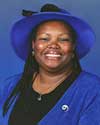 Rolanda Pierre Dixon was an Assistant District Attorney for Santa Clara County from 1981 through 2011 and is considered by many as the county’s expert on domestic violence. She was also the Human Trafficking liaison for the District Attorney’s office. Ms. Pierre Dixon is a graduate of San Jose State University with a BA degree in Political Science. She received her JD from the University of Santa Clara in 1980.
Rolanda Pierre Dixon was an Assistant District Attorney for Santa Clara County from 1981 through 2011 and is considered by many as the county’s expert on domestic violence. She was also the Human Trafficking liaison for the District Attorney’s office. Ms. Pierre Dixon is a graduate of San Jose State University with a BA degree in Political Science. She received her JD from the University of Santa Clara in 1980.
She established the first domestic violence unit in Santa Clara County in 1991 and was the supervisor of the unit until January 2006 when she was promoted to Assistant District Attorney. She supervised the Family Violence Unit which included domestic violence, elder abuse, child abuse and child abduction, the Criminal Issuing Team, Child Dependency and oversaw the Victim Witness Program. She also supervised the Robbery/Assault and Narcotics units. She was also the office’s expert on Human Trafficking. She retired in August of 2011 after 30 years of service as an Assistant District Attorney.
She is currently a member of the City of San Jose’s Election Commission, Board of Visitor member for Santa Clara University School of law, Board member Social Justice Committee SCU Law and a Board Member of Silicon Valley American Leadership Forum. In 2013 she was appointed to the Defined Compensation Committee for the County of Santa Clara.
 Kathleen “Cookie” Ridolfi is a Professor of Law at Santa Clara University School of Law and the cofounder and former Director of the Northern California Innocence Project. In 2004, she co-founded the Innocence Network, an affiliation of organizations dedicated to pursuing exonerations on behalf of wrongfully convicted prisoners and working to redress the causes of wrongful conviction. She was lead researcher and co-author of Preventable Error, A Report on Prosecutorial Misconduct in California 1997-2009. From 2004-2008, she served on the California Commission on the Fair Administration of Justice tasked with the study and review of the administration of criminal justice in California. In 2010, Professor Ridolfi launched the VERITAS Initiative, a research and policy program at Santa Clara University School of Law committed to pursuing data-driven justice reform. She remains committed to educating law students by teaching in the areas of criminal law, wrongful conviction, and legal ethics. Professor Ridolfi has been the recipient of numerous awards, including California Lawyer Magazine Attorney of the Year, Women Defenders Annual Award, and the ACLU’s Don Edwards Civil Liberties Award. She has also been recognized by the Daily Journal as one of the top 75 women litigators in California.
Kathleen “Cookie” Ridolfi is a Professor of Law at Santa Clara University School of Law and the cofounder and former Director of the Northern California Innocence Project. In 2004, she co-founded the Innocence Network, an affiliation of organizations dedicated to pursuing exonerations on behalf of wrongfully convicted prisoners and working to redress the causes of wrongful conviction. She was lead researcher and co-author of Preventable Error, A Report on Prosecutorial Misconduct in California 1997-2009. From 2004-2008, she served on the California Commission on the Fair Administration of Justice tasked with the study and review of the administration of criminal justice in California. In 2010, Professor Ridolfi launched the VERITAS Initiative, a research and policy program at Santa Clara University School of Law committed to pursuing data-driven justice reform. She remains committed to educating law students by teaching in the areas of criminal law, wrongful conviction, and legal ethics. Professor Ridolfi has been the recipient of numerous awards, including California Lawyer Magazine Attorney of the Year, Women Defenders Annual Award, and the ACLU’s Don Edwards Civil Liberties Award. She has also been recognized by the Daily Journal as one of the top 75 women litigators in California.
Writing for Symposium Issue but Unable to Attend
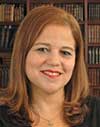 Maria Pabon Lopez earned her BA from Princeton University and received her law degree from University of Pennsylvania, where she was an editor of the University of Pennsylvania Law Review. A native of Puerto Rico, she was the first woman chosen to lead a law school in Louisiana when she joined Loyola University of New Orleans College of Law as dean in 2011. While dean, she participated in the Ignatian Colleagues Program and spent time at the Universidad Centro Americana in El Salvador. She was also integral in the creation of the Loyola Panama Summer Program, the first ABA approved one.
Maria Pabon Lopez earned her BA from Princeton University and received her law degree from University of Pennsylvania, where she was an editor of the University of Pennsylvania Law Review. A native of Puerto Rico, she was the first woman chosen to lead a law school in Louisiana when she joined Loyola University of New Orleans College of Law as dean in 2011. While dean, she participated in the Ignatian Colleagues Program and spent time at the Universidad Centro Americana in El Salvador. She was also integral in the creation of the Loyola Panama Summer Program, the first ABA approved one.
Professor Pabon Lopez is an expert in immigrants’ rights, diversity/multicultural matters in the legal profession, focusing on issues concerning Latinos, race and the law, and the status of women lawyers. She has also researched and written articles about immigration law in Spain. An elected member of the American Law Institute since 2011, she has published her scholarly work in the Georgetown Immigration Law Journal, the Harvard Latino Law Journal, the Hastings Women’s Law Journal, the Seton Hall Law Review and others. Her book, “Persistent Inequality: Contemporary Realities in The Education of Undocumented Latino/a Children” (with Gerardo R. Lopez), was published by Routledge: Taylor and Francis Group in late 2009.
Professor Lopez practiced law for over a dozen years before joining the legal academy. She worked at two large law firms-one in Philadelphia and one in San Juan Puerto Rico, as well as a public interest lawyer in Texas and as federal prosecutor in Puerto Rico. She is the recipient of many diversity awards for recognition of her commitment and support of the minority community.
Prior to Loyola, she was on the faculty at first at the University of Missouri Columbia Law School, where she taught Legal Research and Writing and the Indiana University McKinney School of Law in Indianapolis. She is currently handling a pro bono federal habeas corpus case with her coauthor Jessica Salafia.
